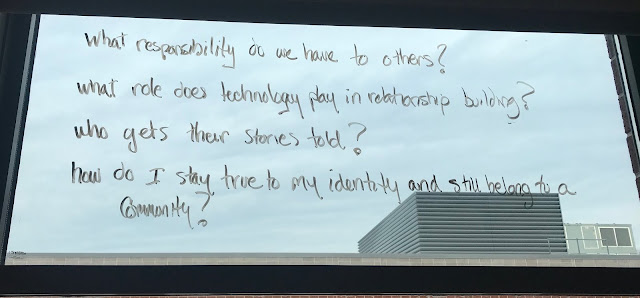The following oral history, recounted
by James Farmer Jr., explains how the
Committee of Racial Equality (which
later became the Congress of Racial Equality)
successfully integrated the Jack
Spratt Coffeehouse in Chicago in 1941.
We went in with a group of about 20 — this
was a small place that seats 30 or 35
comfortably at the counter and in the booths
— and occupied just about all of the
available seats and waited for service. The
woman was in charge again. She ordered
the waitress to serve the whites who were
seated in one booth, and she served them.
She ordered the waitress to serve two whites
who were seated at the counter, and
she served them. Then she told the blacks,
“I’m sorry, we can’t serve you, you’ll have
to leave.” And they, of course, declined to
leave and continued to sit there. By this
time the other customers who were in there
were aware of what was going on and
were watching, and most of these were
university people, University of Chicago, who
were more or less sympathetic with us. And
they stopped eating and the two people
at the counter she had served and those
whites in the booth she had served were not
eating. There was no turnover. People were
coming in and standing around for a few
minutes and walking out. There were no seats
available.
So she walked over to two of the whites at
the counter and said, “We served you.
Why don’t you eat and get out?” They said,
“Well, madam, we don’t think it would be
polite for us to begin eating our food
before our friends here have also been served.”
So a couple of minutes went by and she announced
that she would serve the blacks,
the Negroes, which was the term used then,
in the basement. We, of course, declined
and told her we were quite comfortable. She
then said, “If all of the Negroes will
occupy those two booths in the back we will
serve you there.” We declined again. She
said, “I’ll call the police.”
The Gandhian Motif
Then I said to her, “Fine, I think that
might be the appropriate step.” By the
way, we, still following the Gandhian motif,
had called the police in advance, being
completely open and above board, everything,
in notifying the authorities. We called
the police department and told them what we
were going to do. In fact, we read the
state civil rights law to them. They weren’t
familiar with that. [Laughs] They assured
us that if we followed the pattern which we
outlined to them over the phone, there
was nothing they could do to arrest us.
They’d have no grounds for making an arrest
because we were within our rights to insist
upon service. And we asked them if they
would see that we were served as they were
obligated to do by law, but this they
would not do. No, they wouldn’t do that, but
they wouldn’t arrest us.
Police Arrive
So we said, “Perhaps you should call the
police.” She did. Two cops came a few
minutes later, looked the situation over,
said, “Why, lady, what did you call us for?
I don’t see anybody here disturbing the
peace. Everything seems to be peaceful.”
She said, “Won’t you throw these people out
on the grounds that we reserve the
right to seat our patrons and would serve
some of them in the basement?” The cop
didn’t know. He went to a telephone booth
and made a call. I guess he was calling
headquarters to see if they could do that.
He came out and said, “Nope, sorry, lady,
there’s nothing in the law that allows us to
do that. You must either serve them or
solve the problem yourself.” And the cops
then walked out. On the way out they
turned around and winked at us. [Laughs]
We stayed there until closing time and then
got up and left and went back the
next day, a little bit earlier, and stayed
until closing time. And so on. They then tried
again to negotiate — without success. We
went back in, oh, several more times and
tied up the whole afternoon, tied up all the
seats. They were doing no business at all.
Finally they cracked. The next time we went
in, they served everybody. And
accepted money. Did not overcharge us. We
then sent an interracial group, a smaller
group, in the next day. Everyone was served.
We then sent an all-black group in and
they were served. We waited a week and sent
another black group in, and they were
all served. We sent individual blacks in and
they were all served without any problem.
So we then wrote them a letter thanking them
for their change in policy.
“Prelude,” from My Soul Is Rested by
Howell Raines, copyright © 1977 Howell Raines.

